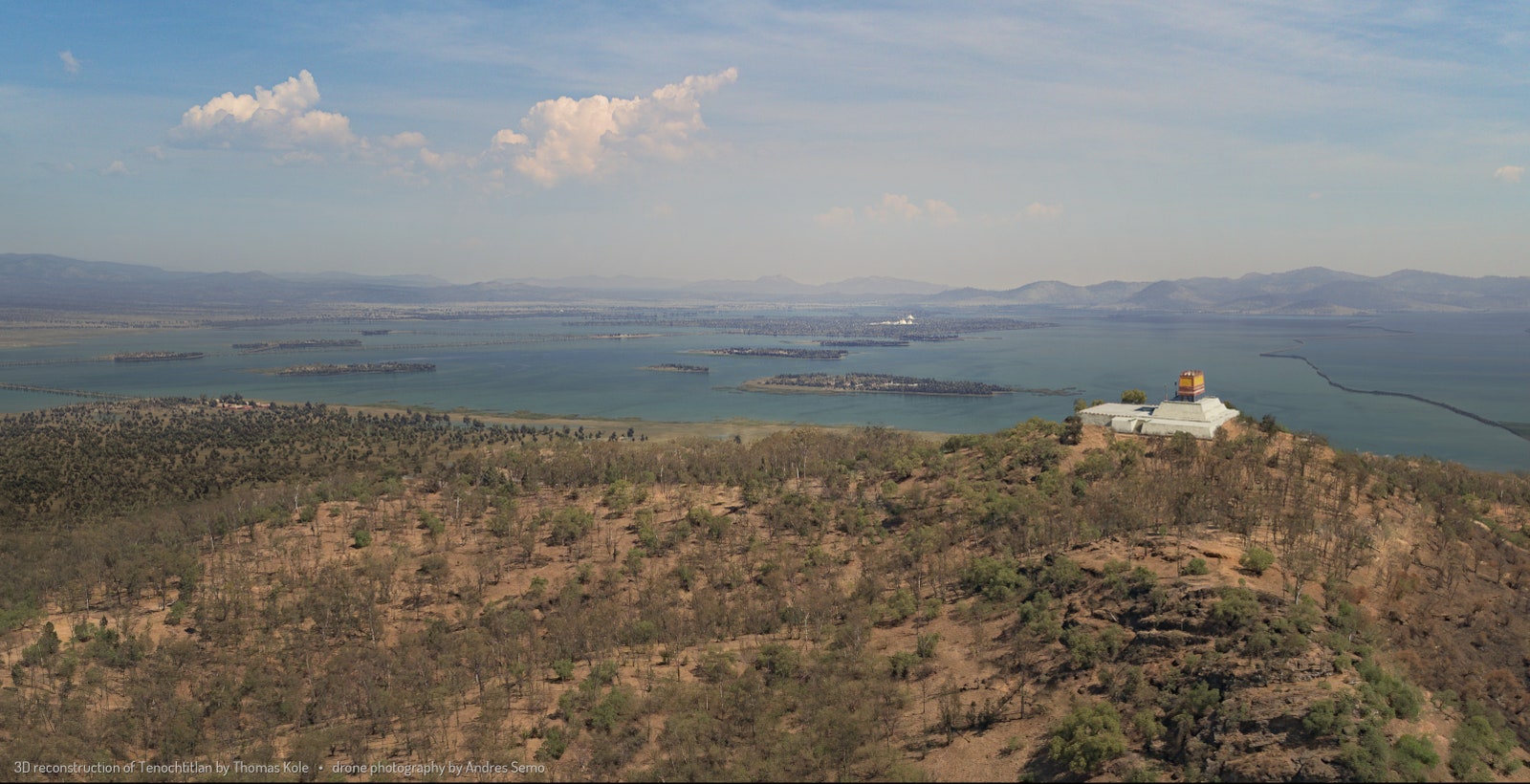The Aztecs did not count time on an infinite scale, as we do, but in cyclical 52-year periods, and at the completion of each cycle, life and the world would begin anew. To initiate the start of a new cycle the New Fire ceremony was held, the most important Aztec ritual. Every 52 years the inhabitants of Tenochtitlán discarded the images of their gods and all their domestic utensils and extinguished any fires in their homes and temples. As the city sat in complete darkness, priests would leave the Templo Mayor and travel to Huixachtlan (Cerro de la Estrella, or Hill of the Star), and at the summit they would perform a ceremony to light a new fire. The ritual was surrounded with uncertainty and fear because it was believed that if the new fire was not successfully lit, the world would end and the stars would turn into monsters that would devour humanity. During the five days prior to the ceremony, the people let their fires go out and destroyed their household goods, and then they waited, fasting and lamenting, pondering the possibility of the collapse of the world. That moment was beautifully re-created in 3D by Kole.
“The really hard part was gathering all the information and then trying things out,” explains Thomas Kole. “How do you create a city when you don’t really know anything about it? How do you start gathering that information? That was really difficult and involved throwing out a lot of things when I found different sources with conflicting information. That’s part of being a pioneer, venturing into the unknown, into what no one has done before, but that’s also very difficult because it takes a lot of time. Also, I don’t speak Spanish and I’m not an academic, so I really approached this as an outsider,” Kole says.
“The year is 1518. Mexico-Tenochtitlán, once an unassuming settlement in the middle of Lake Texcoco, is now a bustling metropolis. It is the capital of an empire ruling over, and receiving tribute from, more than five million people. Tenochtitlán is home to 200,000 farmers, artisans, merchants, soldiers, priests, and aristocrats. At this time, it is one of the largest cities in the world. Today, we call this city Ciudad de Mexico—Mexico City,” reads the site, which opens with a stylized Tenochtitlán glyph, made by Mi Corazón Mexica.


